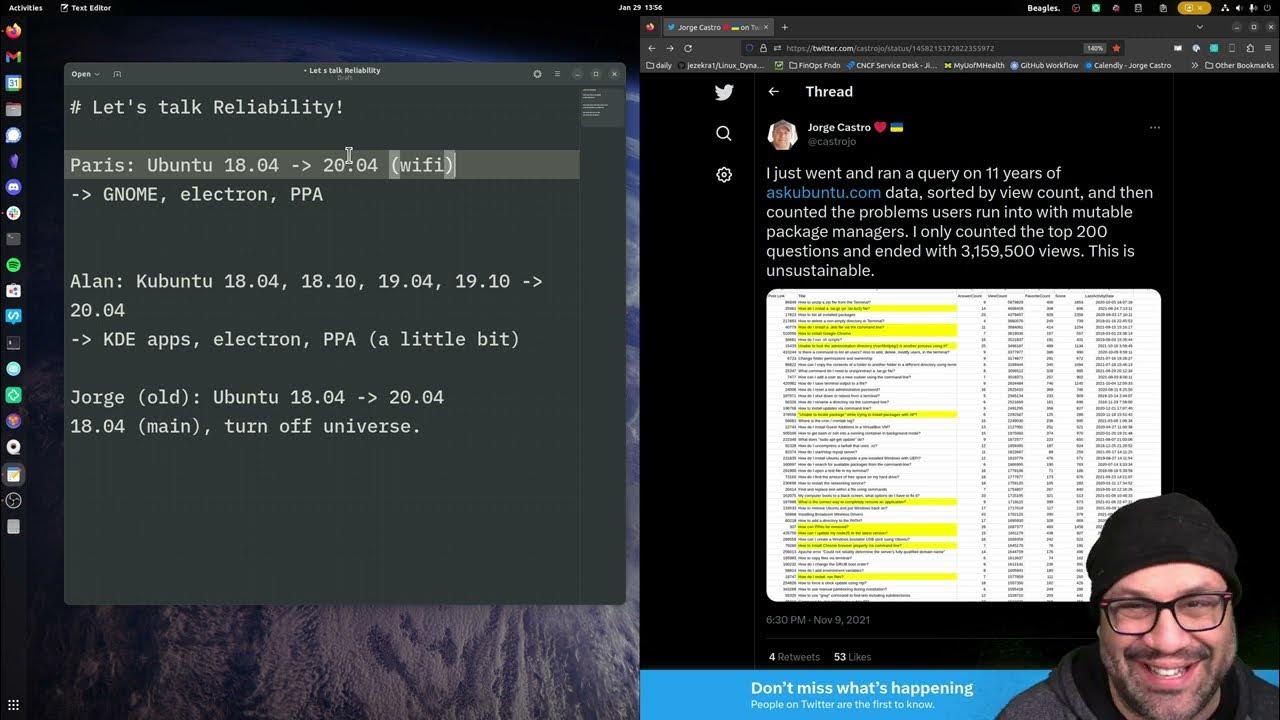Jorge Castro, a developer of the Ublue.it project, talks about why Image-based (immutable) systems are way better.
They are ready to use today, for most people.
Changes to the system can be done in a centralized location, like their NVIDIA images, and you can be sure every Client has exactly the same image.
If something breaks, you can reset it!
And its also way safer, as you have a clean system. Apps cant install what they want. You can easily revert all your changes with rpm-ostree reset.
Btw. you can still install as many packages as you want with rpm-ostree install and even add COPRs and other repos like RPMFusion (included in ublue).
Feel free to ask questions!
Ublues enhanced Kinoite image is what I use. Minimal layers, awesome experience!



While I generally agree on the issue, the video had a lot of filler and the point could have been made in about 5 minutes.
The issues mentioned mostly hit the classic cycle-based distributions and while rolling release based distributions also have this issue, it’s not as apparent. They usually run for years (I recently switched away from an Arch installation that was about 8 years old that did not have issues with updates or anything). Incidentally, I did actually switch to an immutable system because I wanted to try something new and the machine had been delegated to my secondary in 2020. The mechanism however is very different.
It remains to be seen what immutable approach will gain the most ground in the coming years. We have some immutable systems like the ones in the video that is similar to how Valve does it on the Steam Deck. Take a classic distribution and keep updating a fix base image. Or container if you want to call it that. Then there’s systems that are immutable by their very nature, like NixOS which I installed or something based on Guix. I believe the latter approach is superior if you are in control of the machine while the base image has advantages when you deliver a system to clients who don’t want to or are not supposed to administer the system themselves.
Though I’m quite sure the classic mutable distributions aren’t going away anytime soon.
@Laser @Pantherina Please make a better video summary as I tend to get long winded!
Lol first post?
Nice to hear from you! Great project! Using Kinoite daily and its nice!